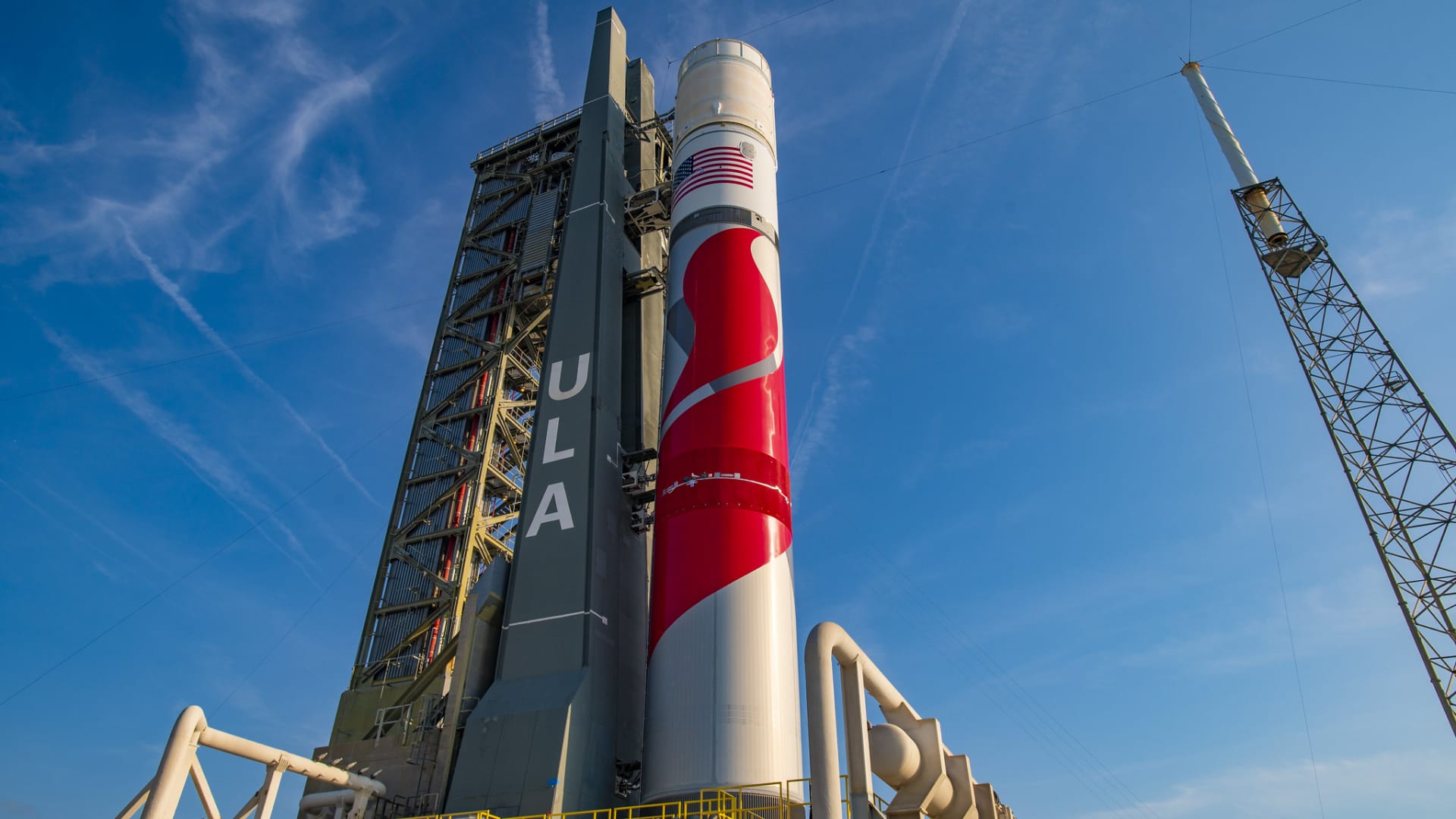United Launch Alliance still plans to fly its heavy-lift Vulcan rocket by late 2023 — despite suffering a mishap earlier this year after an engine exploded during testing.
CNBC previously reported that one of Blue Origin’s BE-4 engines, ordered for ULA’s second Vulcan rocket launch, detonated last month. ULA CEO Tory Bruno said in an interview for CNBC’s “Manifest Space” podcast that the engine faced setbacks during its acceptance phase, but that such occurrences are not uncommon.
“[It] happens in a production run on a rocket — somewhere on the rocket — pretty much every month, and it won’t be news once the other things we’re doing are less interesting,” Bruno explained. “The ones at the launch site have already been through this successfully and even been hot fired in the flight readiness firing.”
Vulcan’s first flight has been delayed several times due to necessary modifications. The debut flight will launch two demo satellites for Amazon’s Project Kuiper. The tech giant is planning on spending $120 million on building a facility at NASA’s Kennedy Space Center for developing satellites for its internet service network.
United Launch Alliance, the joint venture of Lockheed Martin and Boeing, is one of two key launch partners for the satellite project, in addition to Jeff Bezos-backed Blue Origin.
Follow and listen to CNBC’s “Manifest Space” podcast, hosted by Morgan Brennan, wherever you get your podcasts.
Once United Launch Alliance successfully conducts its first two Vulcan missions, the U.S. Space Force will consider clearing the heavy rocket for national security launches. The military division equally divided contracts between ULA and SpaceX for the 12 military missions it’s designated for launch in 2025, with Vulcan selected to fly two missions for the National Reconnaissance Organization.
While only two companies are currently cleared for national security space launches, the Space Force is expanding its list of future rocket launches — and opening the program up to more launch providers.
When asked about the expanded program, Bruno told CNBC that ULA is seeking clarity from the Space Force.
“There is certainly an effort for capacity,” Bruno said. “But in terms of a competitive landscape, it’s not competition if everybody wins.”
The growing demand for military space, however, speaks to a key focus for Bruno: that space is not simply a force multiplier, but “absolutely required for basic military effectiveness” against other nations, particularly China.
As the country has rapidly developed anti-satellite weaponry, the ULA CEO hinted that the company is looking to accelerate its in-space services. According to Bruno, United Launch Alliance is in talks with smaller players to obscure the location of military payloads once they’re in orbit, thereby making it more difficult for opponents to target them.
“It’s a little bit of a fever pitch,” Bruno said. “We have to deal with this problem urgently.”
“Manifest Space,” hosted by CNBC’s Morgan Brennan, focuses on the billionaires and brains behind the ever-expanding opportunities beyond our atmosphere. Brennan holds conversations with the mega moguls, industry leaders and startups in today’s satellite, space and defense industries. In “Manifest Space,” sit back, relax and prepare for liftoff.
